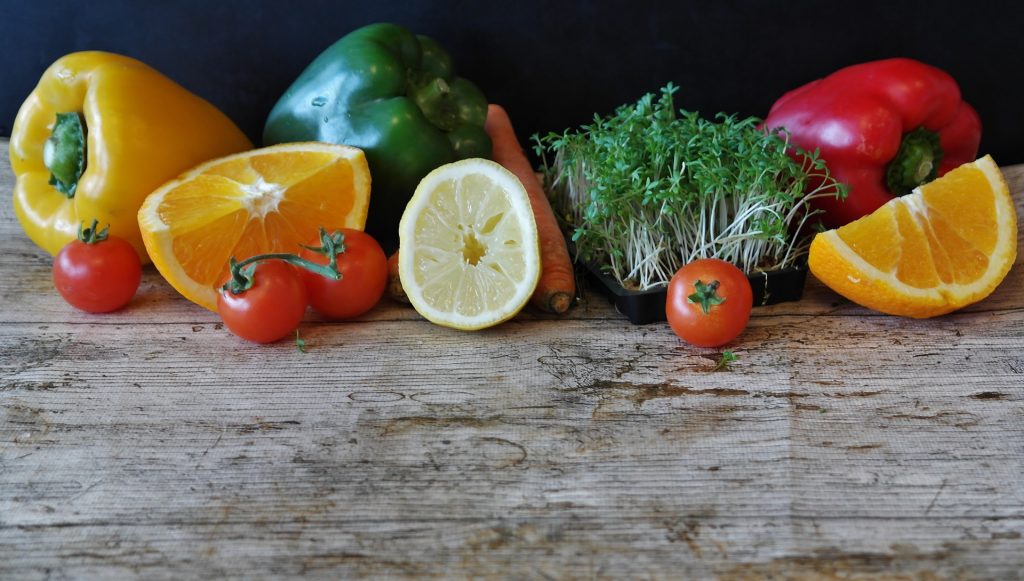 One theory suggests that mood disorders are caused at least in part by an excessive accumulation of free radicals in brain and nervous tissues. These free radicals in turn lead to oxidative stress and this damages the function of neurones in the brain and central nervous system, either directly through the oxidation of membranes, or indirectly through modulation of normal brain signalling molecules. It is known that many herbs that are rich in polyphenol antioxidants are beneficial to mental health and supplements of antioxidant nutrients such as vitamin C are also beneficial. Fruits and vegetables are a rich source of antioxidant phytochemicals including vitamin C and polyphenols, two nutrients that have shown to cause improvements in mood disorders. Evidence from studies suggests that diets high in fruits and vegetables may reduce the risk of developing mood disorder. In this regard, one study investigated the association between diets high in fruit and vegetables and the risk of depression in nearly 300 elderly participants.
One theory suggests that mood disorders are caused at least in part by an excessive accumulation of free radicals in brain and nervous tissues. These free radicals in turn lead to oxidative stress and this damages the function of neurones in the brain and central nervous system, either directly through the oxidation of membranes, or indirectly through modulation of normal brain signalling molecules. It is known that many herbs that are rich in polyphenol antioxidants are beneficial to mental health and supplements of antioxidant nutrients such as vitamin C are also beneficial. Fruits and vegetables are a rich source of antioxidant phytochemicals including vitamin C and polyphenols, two nutrients that have shown to cause improvements in mood disorders. Evidence from studies suggests that diets high in fruits and vegetables may reduce the risk of developing mood disorder. In this regard, one study investigated the association between diets high in fruit and vegetables and the risk of depression in nearly 300 elderly participants.

Fruits and vegetables may be protective of mood disorders because of the antioxidant phytochemicals they contain.
The results of the study showed that depressed individuals had significantly lower levels of Vitamin C, lutein and cryptoxanthin compared to non-depressed individuals. The results also showed that the intakes of total fruits and vegetables were lower in depressed individuals compared to non-depressed individuals. In addition, those individuals with late-life depression also had significantly lower fruit and vegetable intakes compared to healthy individuals. These results are supported by a similar study where researchers assessed the association between vegetable intake and depression in older individuals. In this study, fruit and vegetable intake was protective of depression, although analysis showed that vegetables were more strongly associated with a protective effect. Both of these studies therefore suggest that higher intakes of fruits and vegetables may be protective of depression in older adults. This supports other data from other studies that suggest that antioxidants are protective of mood disorders.
Eat Well, Stay Healthy, Protect Yourself
RdB
